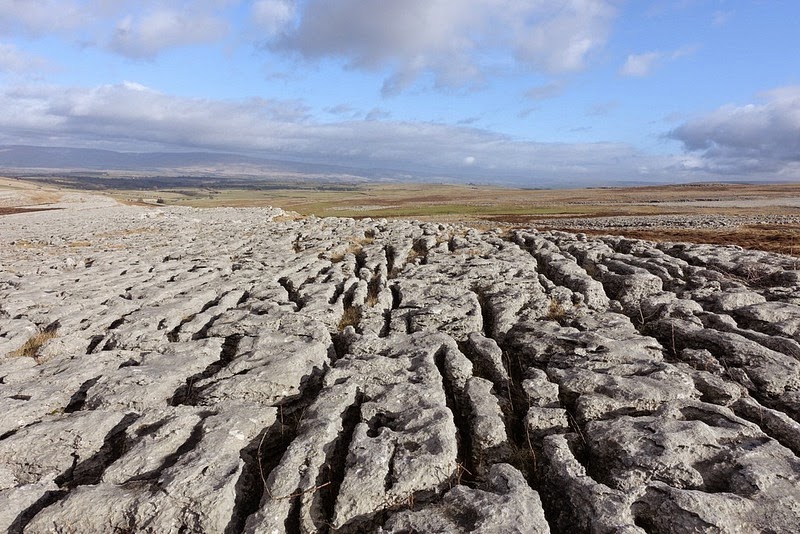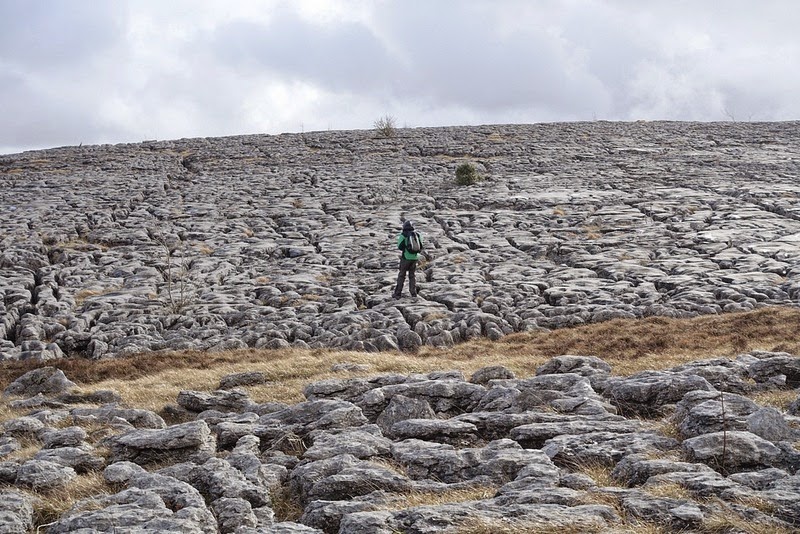The Orton Fells, located to the east of Lake District, in Cumbria County, in England, is an area of remarkable geology. This vast area bounded by the small villages of Orton, Great Asby, Little Asby, Crosby Ravensworth and Crosby Garret, contains some of the most fascinating limestone outcrops, scars and pavements in Great Britain. Limestone pavements are areas of flat, exposed and weathered limestone rock surfaces. Abrasion by glaciers as well as natural weathering of the limestone has created deep fissures, which has broken the pavement into blocks that look as if they were sculpted by human hands. Most of these pavements were damaged by mining over the centuries. The Great Asby Scar, near the village of Great Asby, and Orton Scars, near Orton, contain some of the best remaining examples in Britain.

The limestone rocks in these pavements were formed during the Carboniferous era some 350 million years ago. At that time this area was under the sea. Walking across the limestone pavement you can still find fossils of the ancient corals, shelly creatures and sea lilies from which the rock is made.
During the last ice age, the limestone was covered by an ice sheet many hundreds of meters thick that scarred the limestone bedrock. When the ice melted, it left sediment on top of the rock which was colonized by trees and plants as the weather warmed. Water running through the soil found weaknesses in the rocks that were then eroded away becoming deep fissures. The water also left channels and hollows in the rock, which were exposed as the soil was washed away over thousands of years. These runnels and pits now make up the beautiful and intricate patterns that can be seen on the Orton Fells pavements.
The deep fissures are home to a number of plants and ferns where they remain protected from grazing animals and the drying effect of the wind. Many invertebrates, including spiders also use the fissures of the limestone pavement to string their webs across to catch insects.





No comments:
Post a Comment